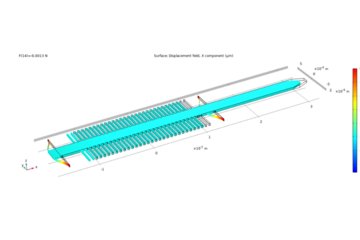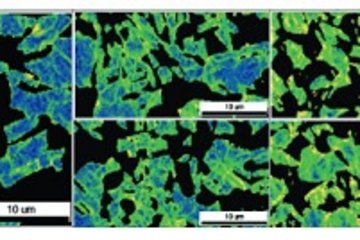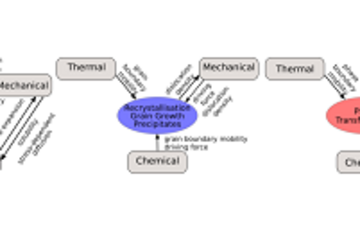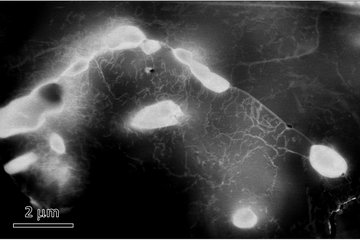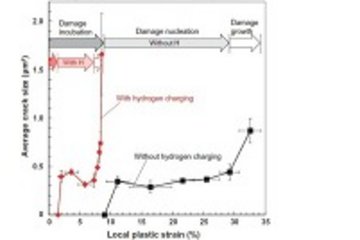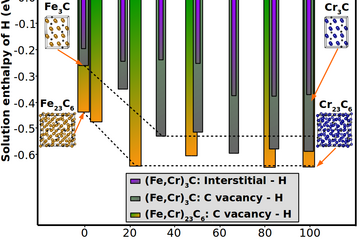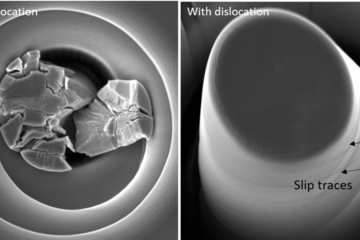All genres
1.
Journal Article
Chemistry and microstructure of C-supported Ru catalyst nanoparticles: A correlative study. Ultramicroscopy 254, 113831 (2023)
2.
Journal Article
Influence of the shell thickness on the degradation of Ru@Pt core-shell catalysts in PEM fuel cells. Journal of Power Sources 554, 232327 (2023)
3.
Journal Article
Evaluation of functional layers thinning of high temperature polymer electrolyte membrane fuel cells after long term operation. Nanoscale 14 (32), pp. 11543 - 11551 (2022)
4.
Journal Article
Insights into the performance and degradation of Ru@Pt core-shell catalysts for fuel cells by advanced (scanning) transmission electron microscopy. Nanoscale 14 (48), pp. 18060 - 18069 (2022)
5.
Journal Article
Correlation between the TiO2 encapsulation layer on Pt and its electrochemical behavior. Nanoscale Advances 3 (17), pp. 5075 - 5082 (2021)
6.
Journal Article
Irreversible Structural Changes of Copper Hexacyanoferrate used as Cathode in Zn‐Ion Batteries. Chemistry – A European Journal 26 (22), pp. 4917 - 4922 (2020)
7.
Journal Article
Frontispiece: Irreversible Structural Changes of Copper Hexacyanoferrate Used as a Cathode in Zn-Ion Batteries. Chemistry - A European Journal 26 (22), pp. 4917 - 4922 (2020)
8.
Journal Article
Towards maximized utilization of iridium for the acidic oxygen evolution reaction. Nano Research 12 (9), pp. 2275 - 2280 (2019)
9.
Journal Article
Pore-interconnected hollow (Sn,Ti)O2 solid-solution nanoparticles for lithium-ion battery anode materials. Composites Part B: Engineering 166, pp. 613 - 620 (2019)
10.
Journal Article
Combinatorial Synthesis and High-Throughput Characterization of Fe–V–O Thin-Film Materials Libraries for Solar Water Splitting. ACS Combinatorial Science 20 (9), pp. 544 - 553 (2018)
11.
Journal Article
Accelerated fuel cell tests of anodic Pt/Ru catalyst via identical location TEM: New aspects of degradation behavior. International Journal of Hydrogen Energy 42 (40), pp. 25359 - 25371 (2017)
12.
Journal Article
Unraveling micro- and nanoscale degradation processes during operation of high-temperature polymer-electrolyte-membrane fuel cells. Journal of Power Sources 364, pp. 437 - 448 (2017)
13.
Journal Article
Growth of Porous Platinum Catalyst Structures on Tungsten Oxide Support Materials: A New Design for Electrodes. Crystal Growth & Design 17 (4), pp. 1661 - 1668 (2017)
14.
Journal Article
Insight into the Degradation of HT-PEMFCs Containing Tungsten Oxide Catalyst Support Material for the Anode. Journal of the Electrochemical Society 162 (3), pp. F280 - F290 (2015)
15.
Talk
Ruthenium-Platinum Core-Shell Nanoparticles as durable, CO tolerant catalyst for Polymer Electrolyte Membrane Fuel Cells. 5th International Caparica Symposium on Nanoparticles/Nanomaterials and Applications (ISN2A), Online (accepted)
16.
Talk
Insights in the stability of Pt/Ru catalyst and the effect for polymer electrolyte membrane fuel cells. Thermec 2021, Online Conference (2021)
17.
Talk
Correlative tomography and electrochemical tests on single Pt/Ru catalyst networks. Microscopy Conference MC2019, Berlin, Germany (2019)
18.
Talk
Structural Investigation of 2D Nanosheets and their Assembly to 3D Porous Morphologies. 5th International Conference on Electronic Materials and Nanotechnology for Green Environment (ENGE 2018), Jeju, Korea (2018)
19.
Talk
Unraveling catalyst growth and degradation mechanisms via STEM. International Workshop on Advanced and In-situ Microscopies of Functional Nanomaterials and Devices, IAMNano 2018, Hamburg, Germany (2018)
20.
Talk
Insight into the degradation of polymer based fuel cells. 3rd international conference on Battery and Fuel Cell Technology , London, UK (2018)




